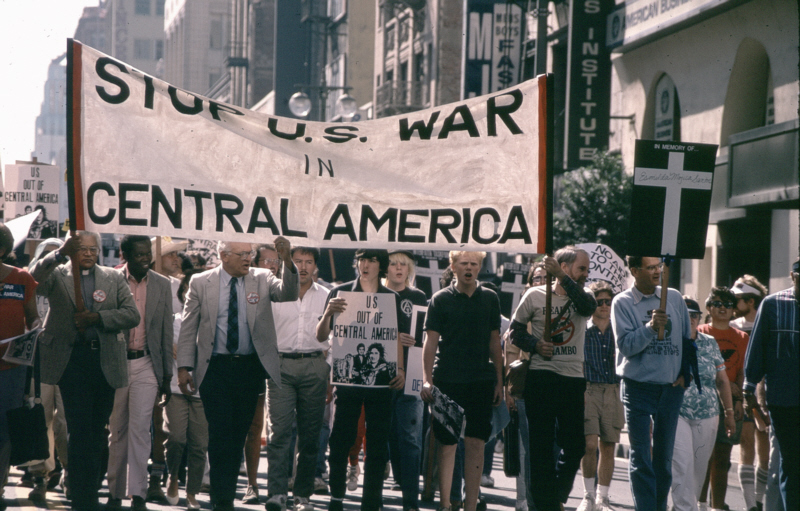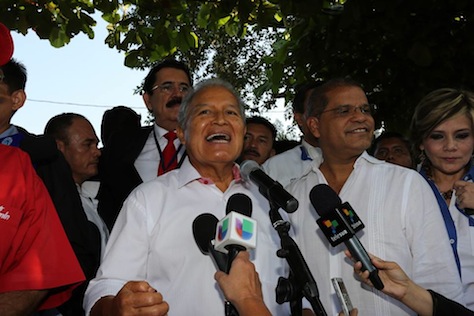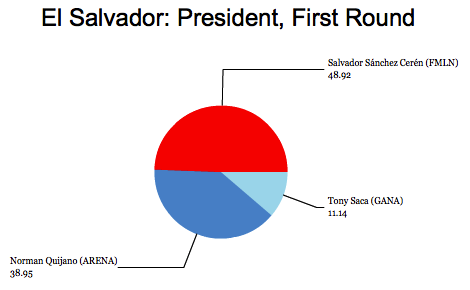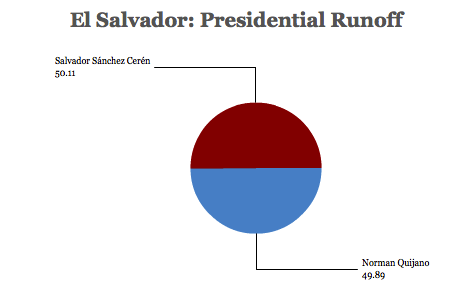At a panel discussion at the Woodrow Wilson International Center with three Central American foreign ministers, moderator Steve Inskeep, the host of NPR’s Morning Edition, began the hourlong talk with a simple question about the rise of unaccompanied minors to the United States: ![]()
![]()
![]()
![]()
Who is to blame?
Speaking to an overflow crowd in Washington, DC yesterday, the three foreign ministers — Honduras’s Mireya Agüero, Guatemala’s Fernando Carrera and El Salvador’s Hugo Martínez — shared a half-dozen or more credible reasons for the phenomenon, which has resulted in a wave of 57,000 minors from the three countries coming to the United States since the beginning of 2014.
Borders that remain too porous and governments unwilling or unable to devote more funds to secure them.
The fearsome sway of street gangs that recruit young kids into a self-perpetuating cycle of violence and illegality, leaving the three Central American countries with some of the highest homicide rates in the world.
Coyotes that, unable to persuade Mexicans to cross the border, have now turned their sights to Central Americans.
Governments that lack the resources to provide the kind of health care, education and legal institutions that could form the backbone of viable middle-class prosperity, leaving growing numbers of Central Americans looking to the United States for a better life.
Lectures from US presidents and policymakers that go unmatched with the kind of financial assistance to build truly pluralistic democratic societies.
Today, with US president Barack Obama holding an unprecedented four-way meeting with the presidents of Honduras, Guatemala and El Salvador, US policy in Central America is making more headlines than at any time since perhaps the Cold War, and it’s the latest round in a polarizing debate over immigration to the United States, with the Obama administration now seeking $3.7 billion in funds from the US Congress to help stem the illegal flow of Central Americans across the border, often at great risk, especially among women and children.
Obviously, like any social phenomenon, the reasons for the influx of unaccompanied minors are complex, and they involve the economics of drug trafficking, the social dynamics of poverty and urban gang violence, and a lack of opportunities for growing populations aspiring to middle-class prosperity. It’s not an impossible dream because countries like Belize, Panamá and Costa Rica are largely achieving it throughout Central America.
Even more complex are the underlying conditions in the three countries that form the background to the current migration crisis, and the roots of those conditions go back decades, with plenty of US interference in the region.
Conservatives rail against Obama’s steps to provide a smoother path to citizenship for the children of migrants who have lived virtually their whole lives in the United States, and even Honduran president Juan Orlando Hernández yesterday blamed the ‘ambiguity’ of the US immigration reform debate for the surge in child migration. Texas governor Rick Perry last month blamed the Obama administration’s ‘failure of diplomacy,’ and has made a show of sending 1,000 National Guard troops to the Texan border. Liberals, meanwhile, argue that former US president George W. Bush failed to enact comprehensive immigration reform when he had the ability to do so a decade ago.
Certainly, there’s plenty of blame among both Republican and Democratic governments in the past two decades.
But so much of the current debate in the United States overlooks the background of how Central America — and especially Honduras, Guatemala and El Salvador — came to be countries of such violence, corruption, insecurity and relative poverty. It also overlooks a significant US role in the region that’s often been marked by dishonorable intentions that has its roots in early 20th century American imperialism, the brutality of zero-sum Cold War realpolitik, and the insanity of a ‘drug war’ policy that almost every major US policymaker agrees has been a failure and that, to this day, incorporates a significant US military presence. Continue reading Unaccompanied minors? Blame a century of US Central American policy.




